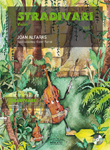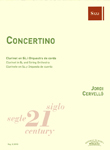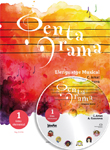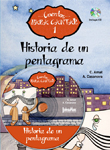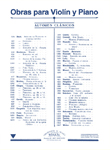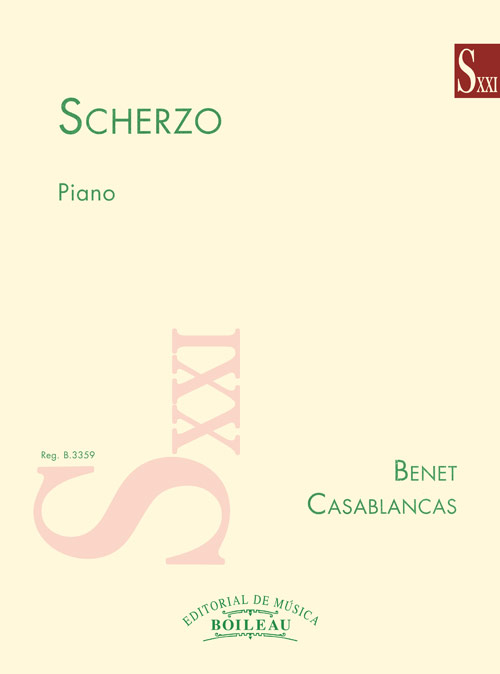WORKS
- Genre
-
Musical education
- Choir
- Counterpoint
- Dictation
- Direction
- Exam study manuals
- General music pedagogy
- Harmony
- Hearing
- Illustrations / Posters
- Improvisation / Sight reading
- Instrument methods
- Instrument pedagogy
- Instrumental study repertoire
- Instrumentation and orquestration
- Musical language
- Solfège
- Templates
- Theory and analysis
-
Incidental music
-
Lined paper
-
Flamenco
-
Religious music
-
Classical / contemporary
-
Modern music
-
Folk music / traditional
-
Musicology
-
Divulgation
-
Games and hobbies
-
Music therapy
-
Children / Youth
-
- Instruments
- Ensemble
- Difficulty level
- Period
- Genre
SOPORTE
Search
Find here: books, scores, composers, digital pieces, cd's
Best-selling works
Our classics

Newsletter
I wish to be informed of the news about your music
We have received your e-mail correctly
Multimedia
Scherzo
Piano
CASABLANCAS, BenetCASABLANCAS, BenetCASABLANCAS, BenetReg.: B.3359
17,90 €
P.V.P. (VAT included 4%)
Add to cart
- Ensemble: Solo.
- Genres: Classical / contemporary: Solos.
- Product format: Partitura
- Difficulty level: Advanced-superior
- Period: 2nd half S. XX - XXI
- Publishing house: Editorial Boileau
- Collection: Siglo XXI
- No. of pages: 24
- Measure: 31,00 x 23,00 cm
- Lenght: 6'00"
- ISMN: 979-0-3503-0337-1
- Available in digital: No
- Available for rent: No
This Scherzo was written during the summer of 2000 in Tagamanent, having been commissioned by the Granollers International Music Festival to commemorate the composer Josep Mª Ruera. It was first performed in October of that year by pianist Jordi Masó, to whom the work is dedicated. Throughout the piece, which is strikingly virtuosic and lasts for approximately seven minutes, the composer alternates very different sections. The main section of the piece, which adheres to the lively, playful and extrovert nature of the genre to which the title refers, thus contrasts with other slow, meditative sections, which increase in importance as the work progresses. Towards the end of the piece, a short passage taken from Ruera’s sardana for piano, Tocs de festa, is included as a tribute to the Catalan composer. The conclusion of the work is based on very fast figures that end up fading out in the high register of the piano.
Scherzo lies within a group of works that stand out for the conciseness of their form, the search for harmonic clarity, great rhythmic dynamism, and a demanding idiomatic rendition that requires the performer’s complicity.

